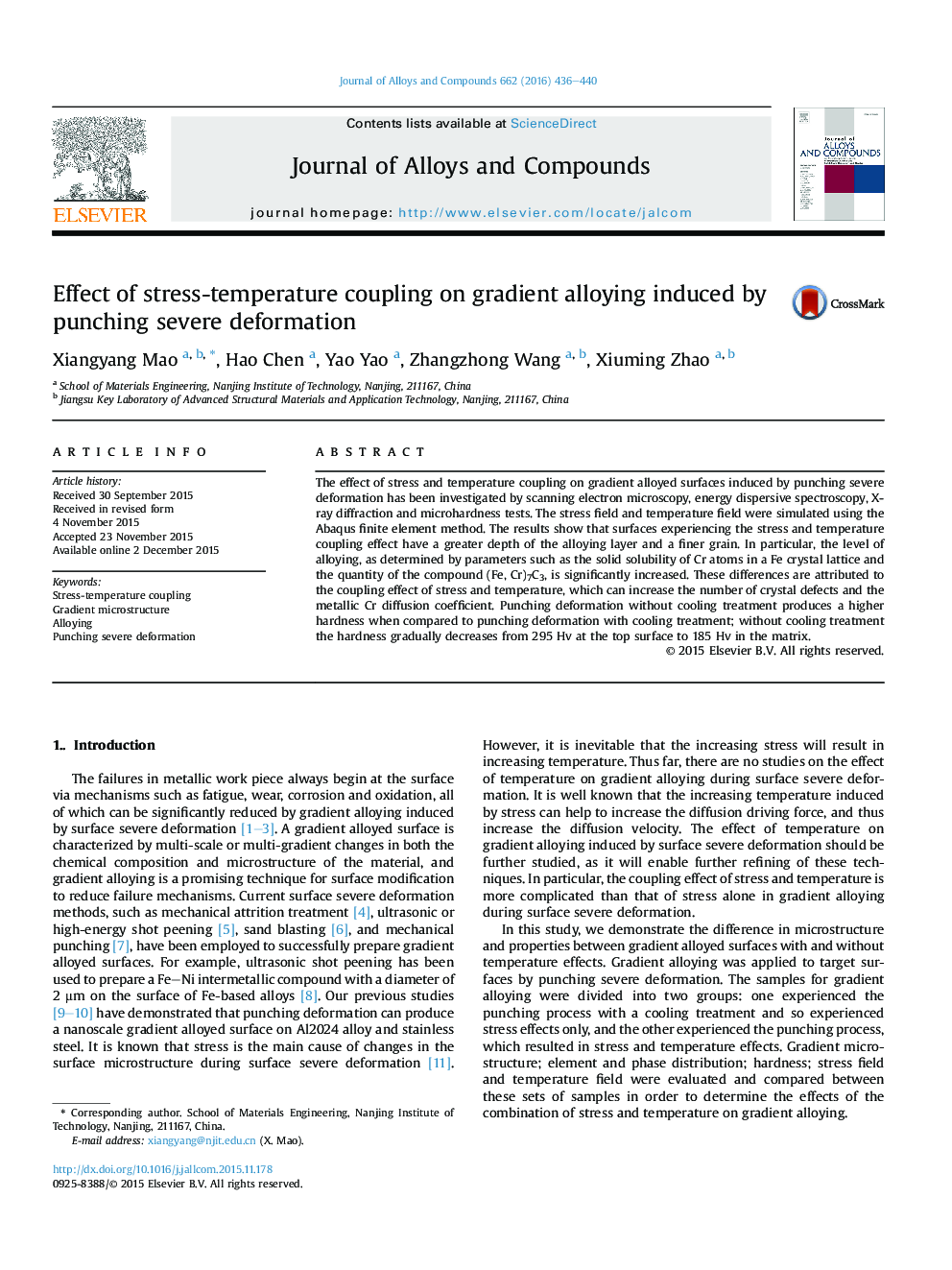| Article ID | Journal | Published Year | Pages | File Type |
|---|---|---|---|---|
| 1606671 | Journal of Alloys and Compounds | 2016 | 5 Pages |
Abstract
The effect of stress and temperature coupling on gradient alloyed surfaces induced by punching severe deformation has been investigated by scanning electron microscopy, energy dispersive spectroscopy, X-ray diffraction and microhardness tests. The stress field and temperature field were simulated using the Abaqus finite element method. The results show that surfaces experiencing the stress and temperature coupling effect have a greater depth of the alloying layer and a finer grain. In particular, the level of alloying, as determined by parameters such as the solid solubility of Cr atoms in a Fe crystal lattice and the quantity of the compound (Fe, Cr)7C3, is significantly increased. These differences are attributed to the coupling effect of stress and temperature, which can increase the number of crystal defects and the metallic Cr diffusion coefficient. Punching deformation without cooling treatment produces a higher hardness when compared to punching deformation with cooling treatment; without cooling treatment the hardness gradually decreases from 295Â Hv at the top surface to 185Â Hv in the matrix.
Keywords
Related Topics
Physical Sciences and Engineering
Materials Science
Metals and Alloys
Authors
Xiangyang Mao, Hao Chen, Yao Yao, Zhangzhong Wang, Xiuming Zhao,
